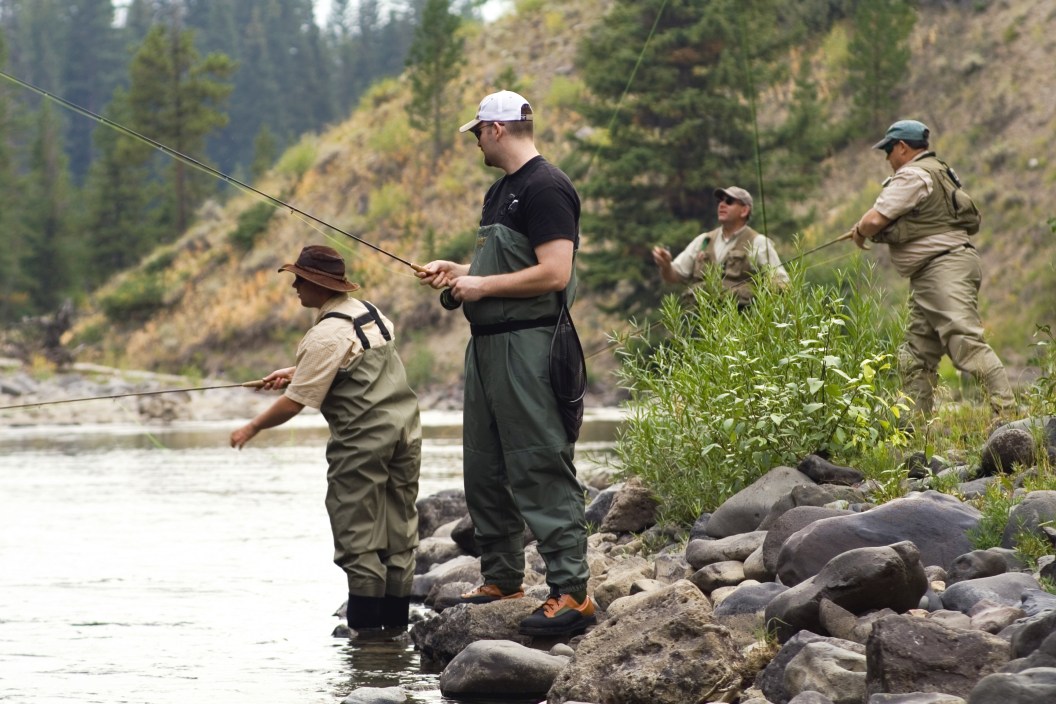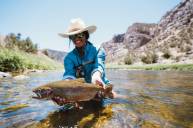A new study out of the UK has confirmed what most of us who fish probably already know: Fishing is wonderful for your mental health. Conducted by several universities, the study surveyed over 1,700 male participants about their angling habits, mental health, and well-being.
The results were truly remarkable: Men who fished regularly were 17% less likely to report being diagnosed with mental health conditions.
And the more men fished, the greater the positive impact on their mental health.
A different study earlier this year found similar results among women, noting that among women who fish, one in four reported that it improved their mood and helped them to manage their mental health and long-term stress.
But the new UK research is especially good news for men: Over 6 million men in the United States are affected by depression every year and 20% of men will experience an anxiety disorder at some point during their life, according to the National Institute of Mental Health.
At the same time, men don't utilize coping strategies as often as women. Studies also show that men are less likely to seek help for their mental health struggles compared to women. Some 20% of men binge drink, and the gender is more likely to use nearly all types of illicit drugs.
These struggles with anxiety and depression and lack of coping mechanisms has led men's mental health to be termed as "a silent epidemic"—and one that could be driving higher suicide rates in men: In 2021, the suicide rate for men was 3.90 times that of women, and taking one's own life is the eighth leading cause of death for men in the US.
How Fishing Can Help Anxiety and Depression
There's a famous meme that says, "men will literally [insert any absurd activity] instead of going to therapy." But the truth is, sometimes it is simply easier to just get outside and do something you love and perhaps unintentionally leverage the calming powers of nature. While the most recent study doesn't extrapolate as to why fishing is so good for mental health, anyone who's spent time on the water knows that the combination of fresh air, solitude, and the flow state that comes from hours spent fishing are balms to any hard day, a fact now proven by this recent study.
Long story short, the meme of "men will literally go fishing instead of going to therapy" might just have some scientific evidence to back it up.
And there are plenty of organizations that feel the same, taking men and boys out on the water explicitly to improve their mental and physical health. If you're not an angler yet but are interested in the mental health benefits fishing provides, this is the perfect way to get into the sport.
1. Fishing The Good Fight
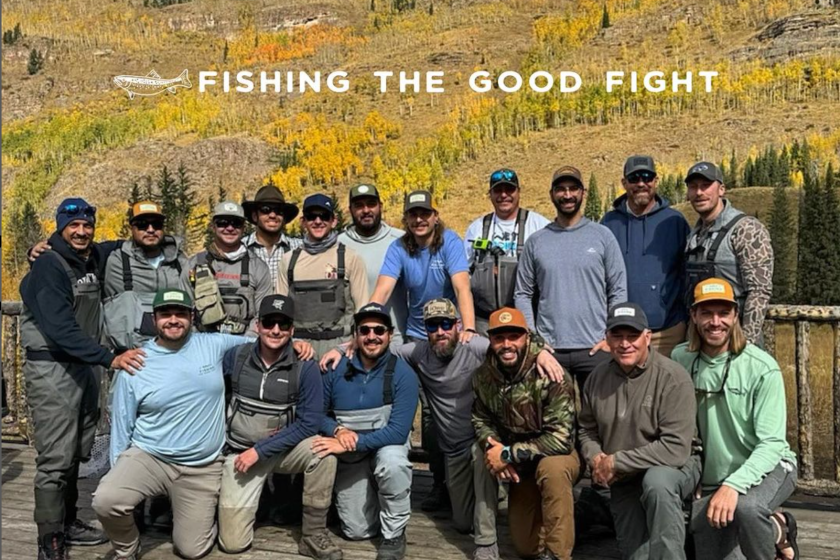
Instagram, Fishing the Good Fight
Fishing the Good Fight is a Colorado-based non-profit that believes in the power of fishing and nature to positively affect people's mental health. Jennings Hester founded the organization to create a community where talking about mental illness wasn't taboo, after many years of struggling with his own depression and anxiety without the help of therapy.
Fishing the Good Fight hosts flyfishing retreats that also include talk therapy and groups led by professionals. They also host men's groups once a month, with presentations on mental health topics, fly-tying nights, and fish-a-long nights for men who are looking to get out after work and meet new fishermen.
The organization is committed to making its events accessible and offers scholarships and fee reductions.
2. Warriors and Quiet Waters
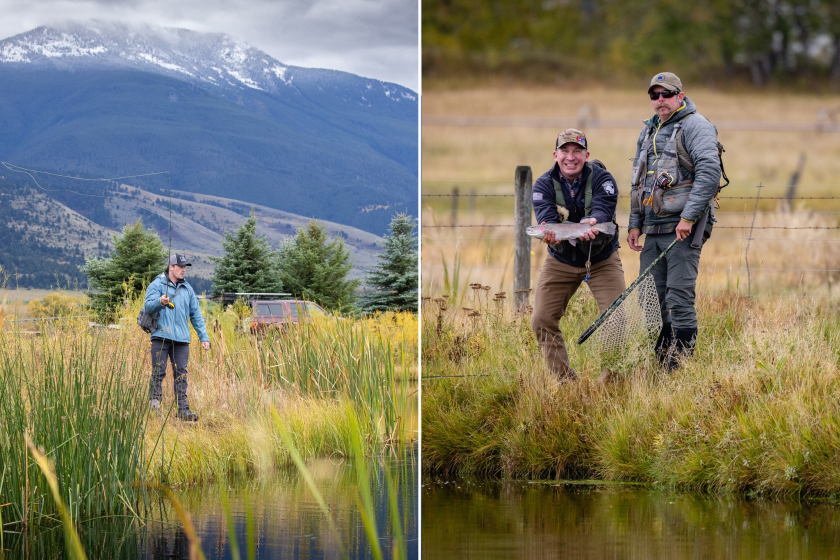
Facebook, Warriors & Quiet Waters Foundation
Designed specifically for post-9/11 combat veterans, Warriors and Quiet Waters' Warriors and Quiet Waters' mission is to guide veterans and their loved ones (both women and men) to a more peaceful, purposeful existence through fly fishing and other outdoor activities. The organization has a ranch in southwestern Montana where they host fishing programs for first-timers, alumni, and caregivers.
The programs specifically target veterans who are feeling stuck or isolated and are looking to make positive changes in their lives. The first-timer programs, called Built For More, begin with 5 days of fishing in Montana, followed by 6 to 12 months of online support and community as participants explore spirituality and find deeper meaning in their lives. Participants then return to the ranch for a 5-day capstone fishing experience back on the ranch. Alumni can return for archery hunting programs, couple's retreats, or photography learning experiences.
All costs associated with Warriors and Quiet Waters programs are free of charge to veterans, including round-trip airfare.
3. Reeling In Serenity
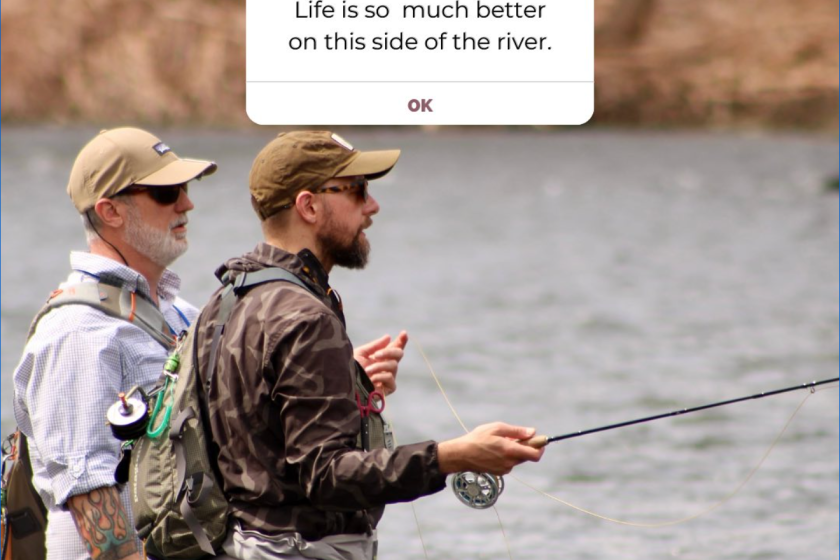
Instagram, Reeling In Serenity
Reeling In Serenity is an organization that supports people who are in active recovery from drug or alcohol addictions through fly fishing retreats. Founder Becca Klein first picked up a fly rod in 2016, and three days later decided to put down the bottle. She replaced her daily alcohol consumption with daily fly fishing outings, and soon realized the benefit that spending time outside, and slowing down, had on her mental health. Other founding staff members also come from a background of addiction and recovery through the help of fly fishing.
The retreats are one to two days long and focus on fly fishing, while also embracing nature and the spiritual connection that is possible through fishing. The fishing retreats are completely free to people in active recovery. Reeling In Serenity hosts an online fundraising auction each year to support their retreats, with items such as hand-tied flies, guided float trips, and art up for auction.
4. On The Mend
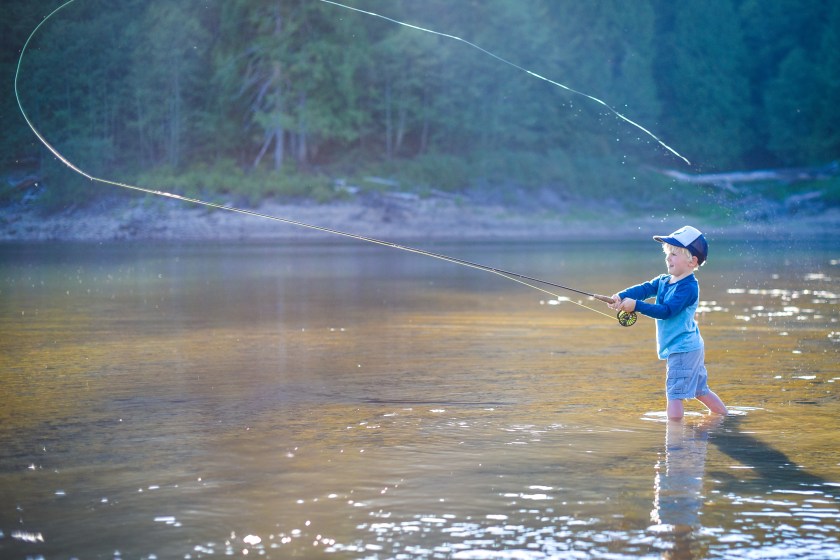
Getty Images, thinair28
On The Mend is a Michigan-based non-profit that offers three-day fly fishing retreats for children (both boys and girls) who are recovering from illnesses, medical treatments, or massive life challenges. The retreat organizers are committed to providing a relaxed, positive environment where children can learn fly fishing and the fundamentals of environmental stewardship. The non-profit's mission is to provide children the opportunity to "experience the therapeutic power of nature."
The retreats are held at various lodges throughout upstate Michigan. They are open to any children under the age of 17, with their parent or guardian, and are completely free to both the youth participant and their guardian.
READ MORE: Forest Therapy: What It Is, and How We Can Benefit From It
